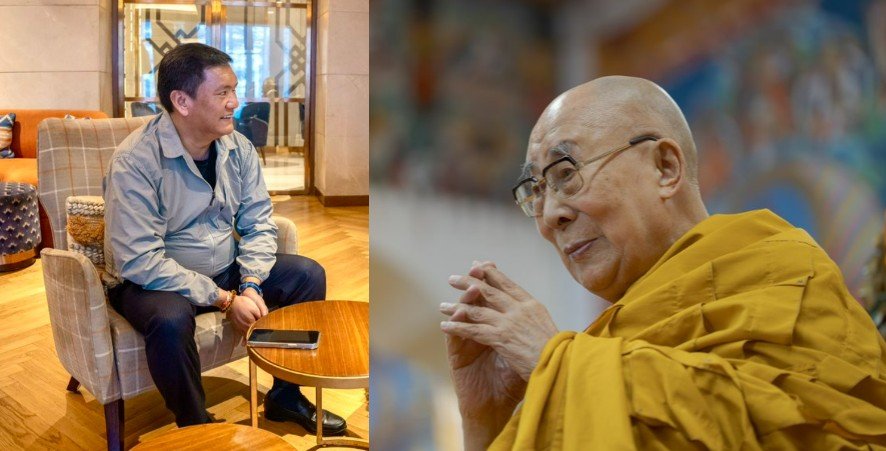Khandu Rejects China’s Claim: ‘We Border Tibet, Not China’
In a bold diplomatic statement, Arunachal Pradesh Chief Minister Pema Khandu has rejected China’s territorial claim over his state by asserting that Arunachal shares a 1,200-km border with Tibet, not China. Speaking to PTI after attending the 14th Dalai Lama’s 90th birthday celebrations in Dharamshala, Khandu emphasized that the region historically shared borders with independent Tibet before its occupation by China in 1950. “Let me correct you,” Khandu said to the interviewer, “We share a border with Tibet, not China.” This subtle yet strong rebuttal undermines Beijing’s persistent claim over Arunachal as “South Tibet” and reiterates India’s historical perspective.
China Forcefully Occupied Tibet in 1950 – Khandu Asserts
Khandu’s statement reflects a broader strategic positioning by India against China’s aggressive assertions in the region. He emphasized that while Tibet is currently under Chinese control, its annexation was by force and does not change Arunachal’s original border with Tibet. He highlighted that Arunachal Pradesh also shares international boundaries with Bhutan (150 km) and Myanmar (550 km), but its longest international border remains with Tibet. His remarks directly challenge China’s frequent attempts to rename places in Arunachal to bolster its territorial narrative and intensify psychological pressure on India.
Dalai Lama’s Succession Should Follow Tibetan Tradition
The issue of the next Dalai Lama’s succession remains a flashpoint in India-China relations. Chief Minister Khandu supported the stance that the reincarnation of the Dalai Lama will take place as per Tibetan Buddhist traditions and not under any government’s control. Echoing Union Minister Kiren Rijiju’s earlier statements, Khandu underlined that the decision belongs solely to the Dalai Lama and the Tibetan religious community. The Dalai Lama himself has declared that only the Gaden Phodrang Trust—his official institution—holds the legitimate authority to recognize his successor.
India Stands With Tibet Amid China’s Aggressive Posturing
Khandu’s statement signals strong solidarity with the Tibetan cause, rejecting China’s interference in Tibetan religious affairs. By highlighting Tibet’s original status before its annexation, he affirms India’s support for the spiritual and cultural rights of Tibetans. This gesture is not merely rhetorical; it reflects India’s broader strategy to counter China’s expansionist ambitions in the region and challenges Beijing’s authority over Tibetan matters. Khandu’s assertion is both a diplomatic message and a reaffirmation of India’s sovereign rights.
Tensions May Rise as India Counters Chinese Narrative
Khandu’s remarks are expected to draw a sharp response from Beijing, as they question China’s fundamental claim over both Tibet and Arunachal Pradesh. With ongoing tensions along the Line of Actual Control (LAC), such assertions may escalate diplomatic friction. However, they also highlight the deepening trust deficit between India and China. Khandu’s bold positioning serves to remind the international community that the future of the Dalai Lama and the identity of Arunachal Pradesh must be guided by historical truths and democratic values—not by authoritarian decrees.








